email marketing drip campaign cadence

Every SEO tool is different.
Some have better keyword data, others have better link data, others give better technical suggestions… in other words, there is no perfect tool.
And I really mean that, even though I created Ubersuggest for you.
Plus paying for a handful of SEO tools can be expensive and isn’t realistic.
But don’t worry, because today, I’m about to make your life a bit easier. Here are 13 free chrome extensions that will help you with your SEO.
What’s beautiful is that when you combine them all, you’ll have everything you need.
So here goes.
Extension #1: Keyword Surfer
It doesn’t matter if you use Ubersuggest, Ahrefs, or SEMrush… there is one thing that all of those tools have in common.
You as a user have to keep going back to them to get the keyword data you need.
Wouldn’t it be easier if you can get keyword insights and some backlink insights right in your Google browser?
With Keyword Surfer, you can get insights through Google’s interface. So, when you do a search for anything, you see the global search volume as well as the volume within your region.

On top of that, you’ll see a list of suggestions and search volume in the sidebar.
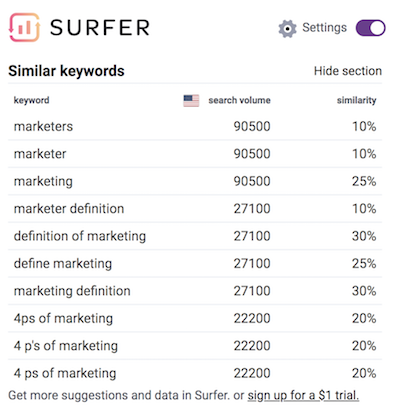
And if you scroll down a bit more you’ll see how many backlinks each result has, which gives you a rough idea of how many links you need to rank in the top 10.
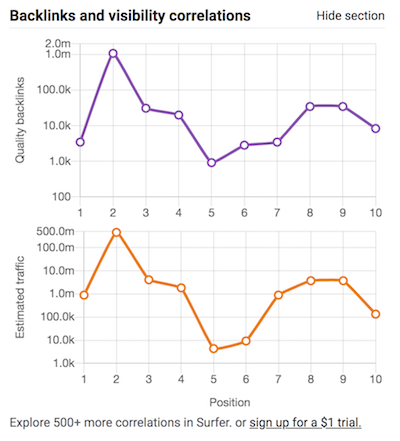
Extension #2: Moz
Domain authority is a metric made up by Moz. Generally speaking, the higher your domain authority, the higher your rankings are.
Moz created a Chrome extension called Mozbar that tells you the domain authority and page authority for any page on the web.

This extension is handy when you are browsing the web and researching any potential competitors as it will quickly show you how you stack up to them and as you are going through their site you can easily spot their most authoritative pages that you need to analyze.
Extension #3: Similar Web
On the web, popularity is everything. We all want more traffic.
Although more traffic doesn’t always mean more revenue, in most cases it does.
Out of all the tools out there, I’ve found that Similar Web gives the most accurate traffic estimations compared to anyone else.
Now with the Similar Web extension, you can get traffic data without going back to their site.
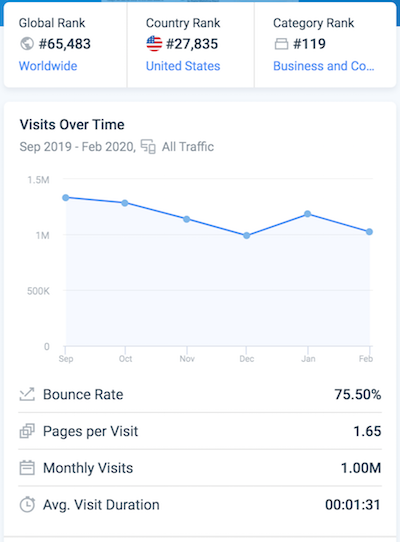
The first thing you can see with this extension is traffic data for the last 6 months. It even breaks down the bounce rate, average pages per visit, and visit duration.
And as you scroll down you’ll be able to see what countries the visitors are coming from.
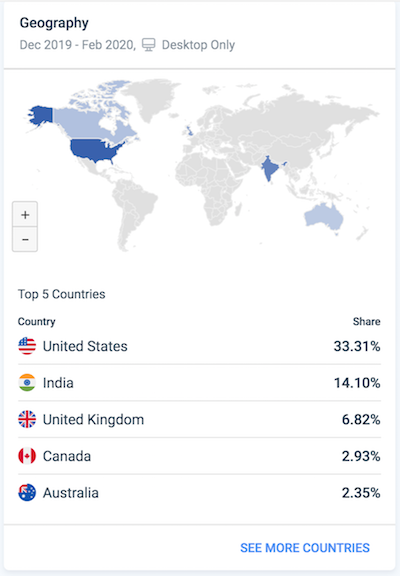
Last, but not least, it shows you the traffic makeup for each site as well. Is the traffic coming from search engines, social media, referral sources, or even direct traffic to the site?
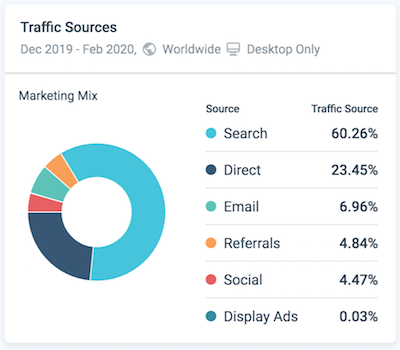
Extension #4: Redirect Path
Redirect Path isn’t as well-known of an extension, but when you are doing technical SEO it is a must.
As time goes on, your URLs are going to change. Whether that is from a new structure or if you are deleting old content and consolidating your pages, this extension will tell you when something goes wrong.
Through Redirect Path, you can quickly see if a redirect is broken or working correctly.
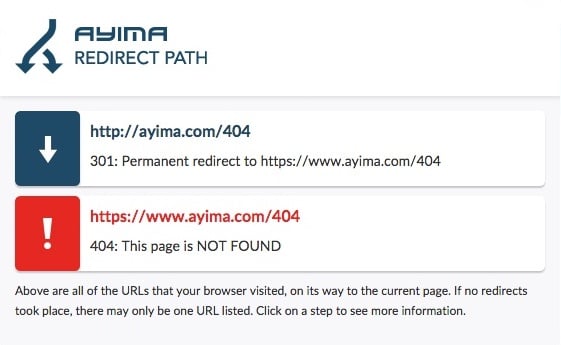
Extension #5: Buzzsumo
Whether you love or hate Facebook, it’s still a popular site that can drive a lot of traffic.
As you are surfing the web, you’ll naturally end up reading some articles. Some of them will be on your competitor’s site and you may be wondering if the article did well or not.

Using the Buzzsumo extension, you can see how many social shares a given article has as well as their backlinks.
You can even see all the most popular articles from that website based on social sharing and backlink count.
This will give you a good idea about the type of content you need to start producing.
Extension #6: Meta SEO Inspector
Errors can really kill your traffic.
The smallest things like your meta tags can have a big impact on your rankings, so you’ll want to make sure they are fully optimized.
Using Meta SEO Inspector, you can quickly see if your meta tags are set up correctly.
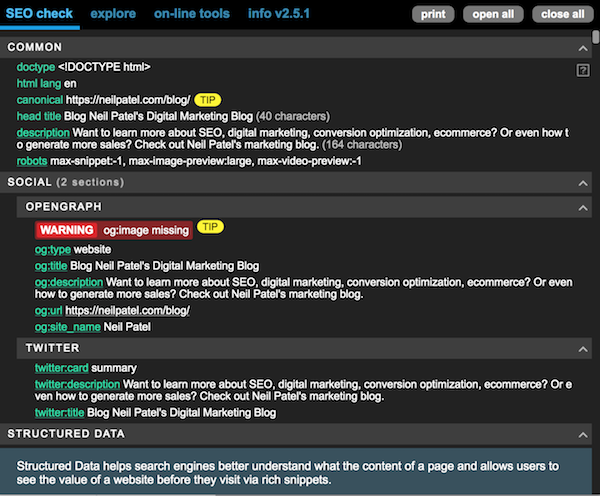
As you can see from the screenshot above, it reports errors.
With that example, I quickly learned that one of my pages doesn’t have an open graph meta tag. That means that when people share that page on the social web, it may not show up correctly, meaning I won’t get as much social media traffic.
Extension #7: Check My Links
Similar to the Redirect Path extension as you are spending more time doing technical SEO and analyzing your competition, the more link data you have the better.
And external links aren’t the only ones that can help boost your rankings.
Knowing data on internal links is important as well.
Check My Links will give you all of the internal links numbers you need when browsing any page on your site (or your competition’s).

And not only will you see an overview, but you can also get details on the whole page as this extension highlights each link.

Extension #8: Pagespeed Insights
Load time doesn’t just impact conversions, it also impacts your rankings.
With nearly 60% of the searches being done from mobile devices, your load time is now more important than ever.
Through the Pagespeed Insights extension, you can quickly see what you need to do to improve your load time on any page on your site.
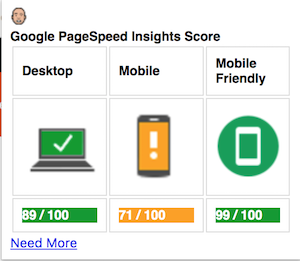
And if you see a score you don’t like, just click “need more” and it will take you to a detailed report that will give you feedback like this:
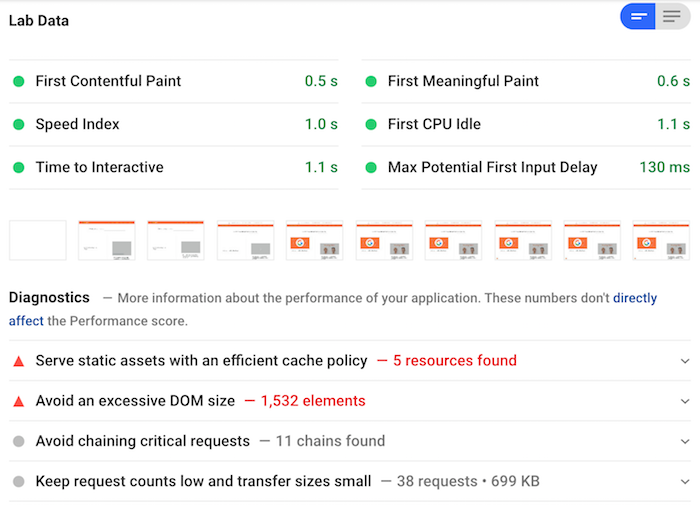
When you find a lot of errors, you’ll want to fix them as over time it will boost your rankings.
Extension #9: SEO Minion
SEO is all about the long game.
If you just spend 10 minutes a day making improvements, it can have a huge impact on your traffic a year down the road.
An easy way to get work done each day is through SEO Minion.
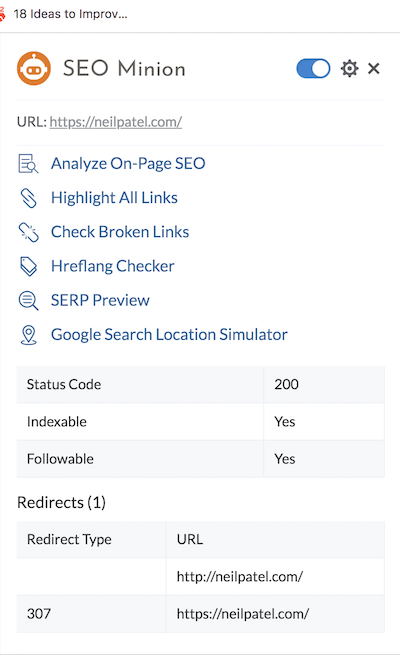
One task that I have my team constantly look at through SEO Minion is broken links.
You’ll want to fix any on your website. In addition, you can use it to find broken links on other websites and then hit them up to replace the broken link to one from your site.
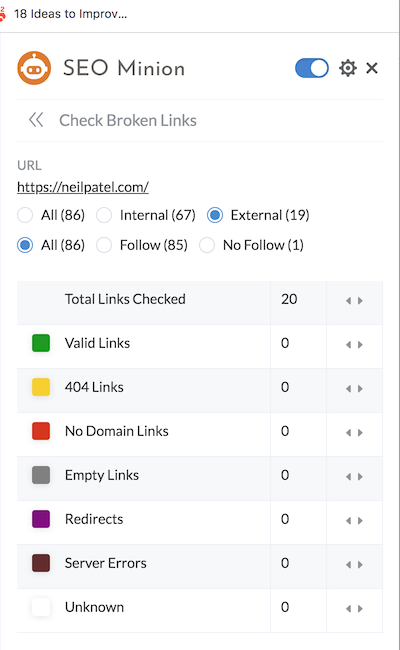
Another way to grow your SEO traffic is by translating your content into other languages.
This extension also breaks down hreflang data, which is needed when you are targeting other regions and languages.
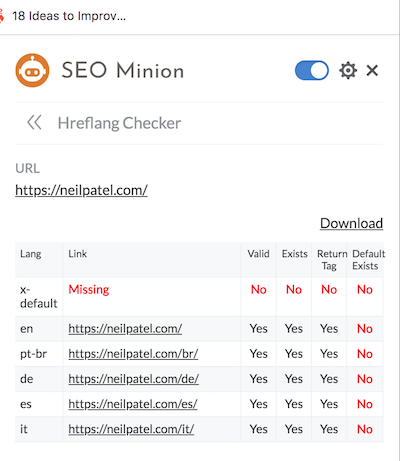
You’ll be given data on your on-page SEO.
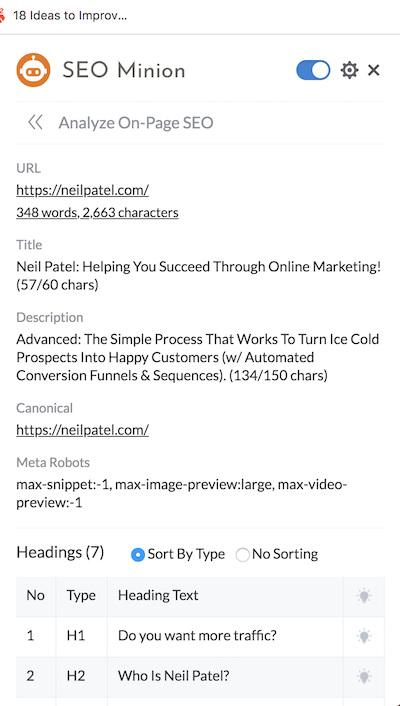
Extension #10: SEOquake
SEOquake is the easiest way to get a detailed overview of your site.
The extension provides a detailed overview of things like your Alexa rank, indexing information for Google and Bing as well as your SEMrush rank.
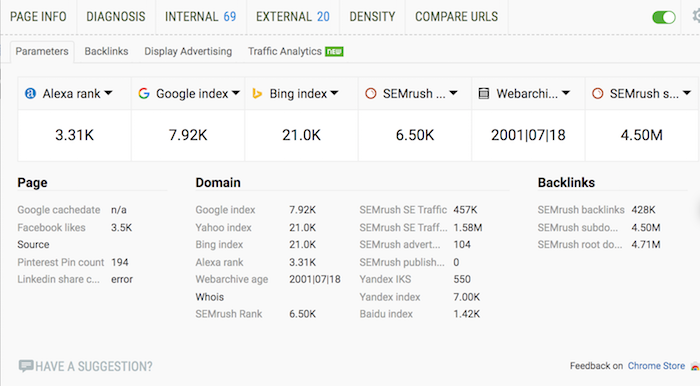
From there, you can dive into specific reports such as a density or diagnosis report.
The density report breaks down the keyword density on any given page.
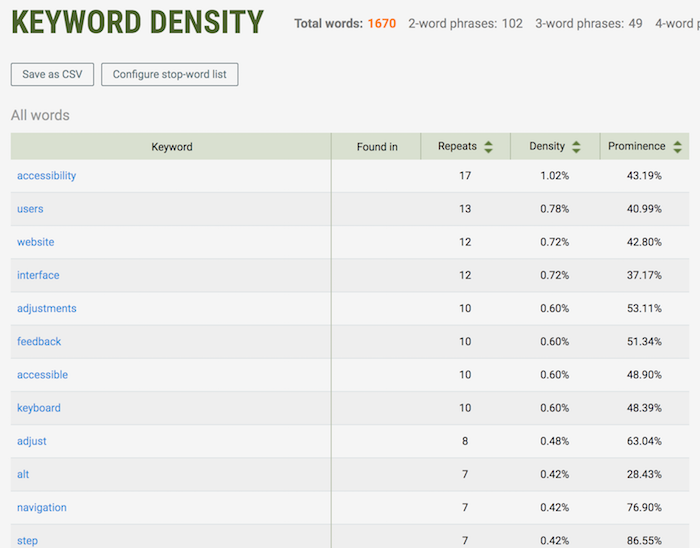
You don’t need to obsess about keyword density, but in general, if you don’t mention a keyword that you want to rank for then chances are you won’t rank for it.
The diagnosis report breaks down on-page SEO elements on any given page.
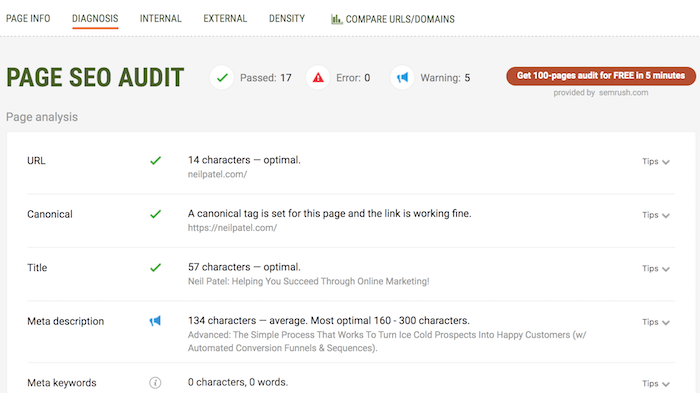
And the most used feature of SEOquake is when you perform a Google search. You’re given information on every site that ranks.
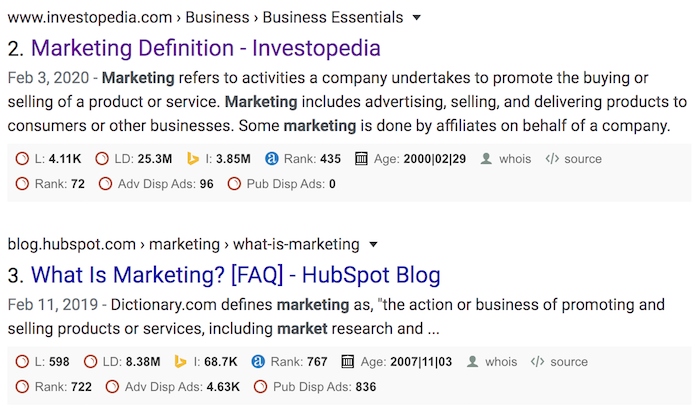
Extension #11: Ninja Outreach
No matter how much on-page SEO you do, you won’t rank well if you don’t build any links.
I know you hate this part of SEO, but manual outreach is one of the best ways to build links even though it is tedious.
One way to make it easier is through Ninja Outreach. This extension shows you all of the email addresses associated with a given domain.
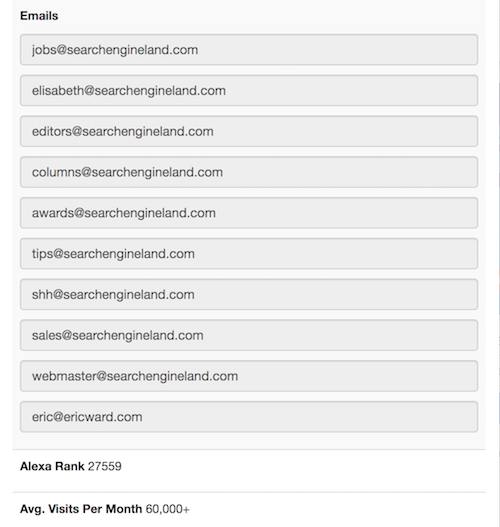
Once you find a relevant site that you want to approach for a backlink opportunity, you can get their contact information through a click of a button and start crafting your custom email.
Extension #12: Keywords Everywhere
This is probably the most popular extension out there for SEOs.
Keywords Everywhere is great for anyone who is doing keyword research.
Just go to Google and type in any keyword that you are interested in going after. Keywords Everywhere will show you a laundry list of other related terms that you can go after as well.
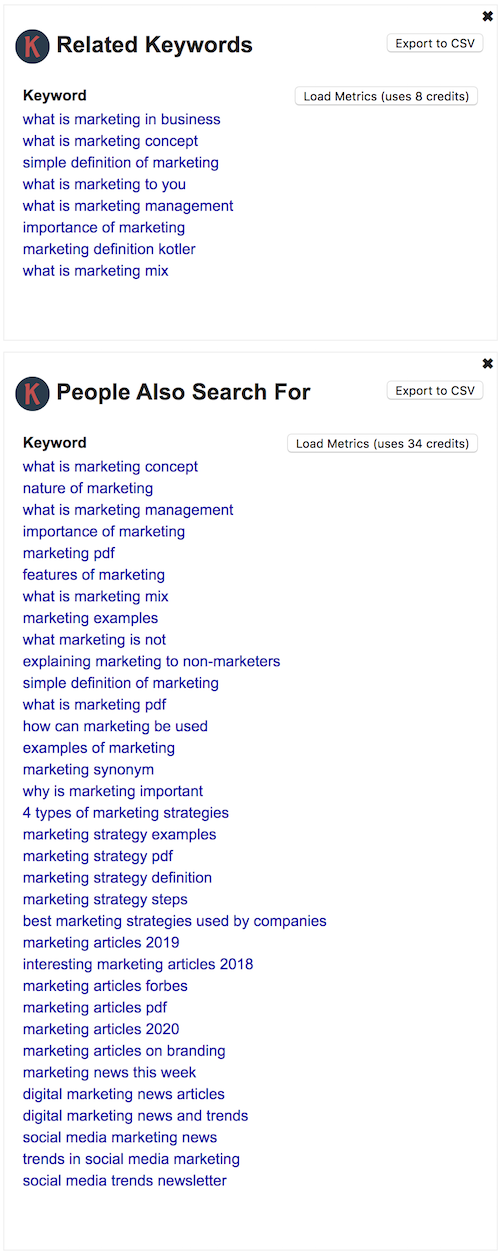
You can quickly export the list and then compile a master list of keywords that are worth targeting.
What’s convenient about Keywords Everywhere is the data is provided right within Google versus having to go to a specific tool.
Extension #13: Fatrank
Although it is a bad habit, as SEOs, we all obsess about rankings.
If you want an easy and free way to track your rankings, just set up a project on Ubersuggest.
Another easy solution to see how you are ranking is by using Fatrank.
All you have to do is head to your site, click on the Fatrank extension, and type in a keyword to see if you rank for it.
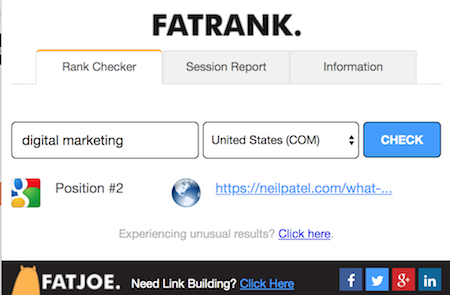
If you rank in the top 100, it will tell you the exact position.
If you don’t, it will let you know that you don’t rank in the top 100.
I use this as a spot check to make sure I am doing decently well after a major Google algorithm update.
Conclusion
There are a lot of options when it comes to SEO. You just have to find the ones that work well for you.
An easy place to start is with the extensions I mentioned above.
You don’t have to use all of them as it may be a bit overkill… but you can use any one of them or a combination to make sure your site is optimized.
What do you have to lose? Test them out as they are free.
What other Chrome extensions do you use on a regular basis?
No comments:
Post a Comment